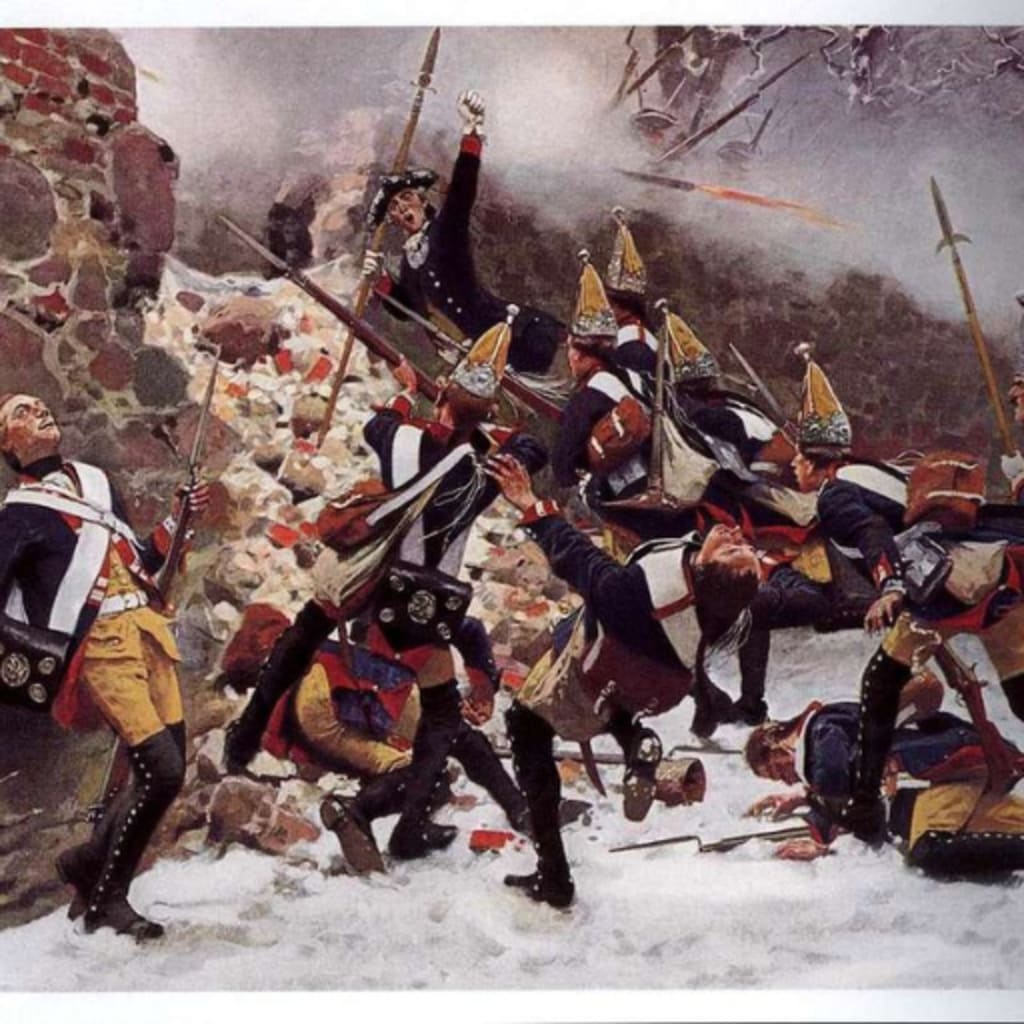The Seven Years' War: A Clash of Empires Reshaping the World Order
The Seven Years' War: Redrawing the Global Map

The Seven Years' War, often dubbed as the world's first global conflict, stands as a watershed moment in history, altering the geopolitical landscape and setting the stage for subsequent power struggles and revolutions. Emerging from a complex web of colonial rivalries, territorial ambitions, and diplomatic realignments, this conflict pitted major European powers against each other across multiple continents. This article seeks to delve into the roots, dynamics, and consequences of the Seven Years' War, highlighting its profound impact on the balance of power, colonialism, and the course of history.
Origins and Historical Context:
At the heart of the Seven Years' War lay a fierce competition among European powers for colonial supremacy. Britain, France, and Spain vied for control over lucrative territories in North America, the Caribbean, and the Indian subcontinent, driven by the desire for economic wealth and geopolitical dominance. Meanwhile, shifting alliances and diplomatic maneuvers reshaped the geopolitical landscape of 18th-century Europe, as nations sought to maintain the delicate balance of power.
Colonial Competition:
The Seven Years' War erupted against the backdrop of intense colonial rivalry, with European powers vying for control over strategic territories. Britain, France, and Spain engaged in fierce competition in North America, seeking dominance over valuable resources and trade routes. This contest for colonial supremacy would ultimately escalate into a global conflict, with far-reaching implications for the balance of power.
You May Like: Unveiling the Treaty of Alliance: USA's Geopolitical Journey
Diplomatic Transformations:
The outbreak of the Seven Years' War marked a significant shift in European diplomacy, as traditional alliances were reconfigured in pursuit of national interests. The realignment of powers saw former allies becoming adversaries, while new partnerships emerged to counterbalance rival ambitions. This diplomatic upheaval laid the groundwork for the complex web of alliances that defined the geopolitical landscape of the 18th century.
Territorial Ambitions:
Central to the Seven Years' War were the territorial ambitions of major European powers. France and Britain clashed over control of territories in North America, while Prussia sought to expand its influence in Central Europe. The conflict also saw Austria seeking to reclaim lost territories from Prussia, adding another layer of complexity to the multifrontal struggle for supremacy.
Global Power Struggle:
What began as a dispute over colonial territories in North America soon escalated into a global power struggle, drawing in nations from Europe, Africa, and Asia. The conflict saw major battles fought on multiple fronts, from the shores of North America to the plains of Europe and the distant colonies of the Caribbean and India. The outcome of these engagements would reshape the balance of power and influence the course of history for years to come.
You May Like: Unveiling the Treaty of Alliance: USA's Geopolitical Journey
The Threat of War:
The Seven Years' War posed a significant threat to global peace, as major European powers clashed in a conflict of unprecedented scale and scope. The war's expansion from a regional dispute to a worldwide conflagration underscored the high stakes involved and the far-reaching consequences of imperial ambitions.
European Front:
In Europe, the Seven Years' War transformed the political landscape, as major powers battled for supremacy on the continent. The conflict saw Prussia emerging as a formidable force under the leadership of Frederick the Great, while Britain solidified its position as the dominant naval power. The war's resolution would have lasting implications for the balance of power in Europe and beyond.
North American Theater:
In North America, the Seven Years' War, known as the French and Indian War, was marked by a series of bloody confrontations between British and French forces. The decisive Battle of Quebec in 1759 proved to be a turning point, as British forces secured a decisive victory over their French adversaries, effectively ending French colonial aspirations in North America.
Global Impact:
Beyond Europe and North America, the Seven Years' War reverberated across the globe, with far-reaching consequences for colonial powers and indigenous peoples alike. Naval battles in the Caribbean and struggles for control over sugar-producing islands underscored the importance of maritime supremacy in shaping colonial fortunes. In India, the Battle of Plassey and British victories over French forces cemented British dominance in the subcontinent, laying the groundwork for the expansion of the British Raj.
Treaty of Paris 1763:
The Treaty of Paris, which concluded the Seven Years' War in 1763, reshaped the global order, with Britain emerging as the dominant colonial power. The treaty redrew colonial boundaries, with Britain gaining vast territories in North America and solidifying its control over key strategic regions. The repercussions of the treaty would be felt for decades to come, laying the groundwork for future conflicts and revolutions.
Conclusion:
The Seven Years' War stands as a pivotal moment in world history, reshaping the balance of power and setting the stage for the age of imperialism. From its roots in colonial competition to its far-reaching global impact, the war left an indelible mark on the course of human events. As nations jockeyed for supremacy on the world stage, the Seven Years' War laid the groundwork for the rise of empires and the dawn of a new era in international relations.
You May Like: Unveiling the Treaty of Alliance: USA's Geopolitical Journey
About the Creator
Mohammed Shahidullah-Bin-Anwar
Mohammed Shahidullah, a Blogger, writes on Historical News. After completing Master's in Bengali from Dhaka University, I accumulated over 15 years of experience in various private companies. Plz visit TIME PRINTER, you will not be upset.






Comments (1)
Hey there, just wanna let you know that this needs to have the disclaimer added to the beginning or ending, stating that it was created with the help of AI 😊